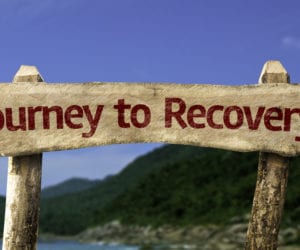Turning Relapse Into The Opportunity for Personal Growth

Relapse Should Motivate You To Continue Reaching For Long-Lasting Sobriety
Relapse is a part of addiction recovery and while not every recovering addict will relapse, a percentage will. If you happen to relapse, you should not get discouraged or unmotivated as addiction is a relapsing and chronic disease that has the tendency to creep back into your life. Just as other diseases require constant monitoring in order to ensure that it does not come back, so does the disease of addiction.
Instead of looking at relapse as a failure, let relapse be the driving force behind your dedication to obtaining long-lasting sobriety from drugs and alcohol. Avoiding certain triggers will aid in your journey toward recovery and it is advised that you refrain from certain people or environments that are not supportive of your sobriety. Even being around an individual who is casually drinking can trigger temptation in a recovering addict.
Understanding Why Relapse Happened
Everyone who achieves sobriety has worked very hard to get to that point. When an individual relapses, it may not seem like it makes sense as they went through treatment and should be ‘cured’, right? We must understand that addiction cannot be ‘cured’, rather, it can only be treated and managed with the proper techniques and coping skills. If you think of any other disease that plagues us, once we have overcome the disease, it always has a chance of coming back which is why we ‘manage’ the disease in order to mitigate its chances of returning. The same applies to the disease of addiction.
Taking the proper steps once relapse has occurred can help create a path that will lead you toward long-term sobriety. If you do not take the appropriate steps, you may be creating a rocky path that will lead you to full-on addiction once again. Remember that relapses are not permanent and you always have the power to make a full recovery. According to the National Institute on Drug Abuse, between 40 and 60 percent of recovering addicts will relapse at least once after they have achieved sobriety. Needless to say, relapse is considered a part of the recovery process.
Taking the Proper Steps
Once you have realized that you relapsed, you may have feelings of frustration and even anger. Coming to terms with the reality of the situation and then taking the proper steps to get back on track is essential to making recovery possible and necessary in order to keep relapse at bay.
Some of the steps that need to be taken are:
- Identifying why you relapsed
- Seek assistance through a support network
- Reflect on personal requirements needed for sobriety
- Leverage your relapse by turning it into a motive to get better
- Dedicate yourself to healthy and constructive life choices
By making sure that you set yourself up for success the second time around, you will have a greater chance of obtaining long-lasting sobriety. Without an action plan in place, you may not know where to turn or how to deal with temptations or urges when they are present.
If you or someone close to you has relapsed, treatment should be sought immediately. Without treatment, the addiction will progress and get worse.
If you or a loved one needs help with abuse and/or treatment, please call the WhiteSands Treatment at (877) 855-3470. Our addiction specialists can assess your recovery needs and help you get the addiction treatment that provides the best chance for your long-term recovery.
